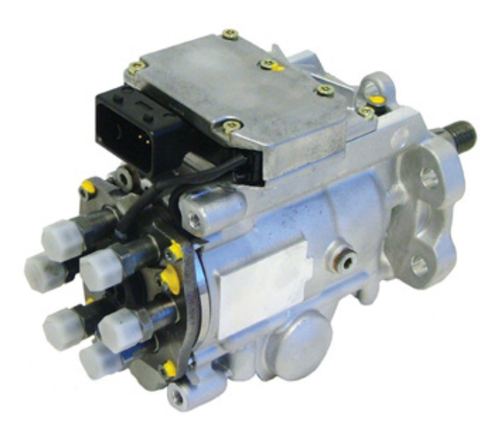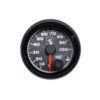Power Driven VP44 Fuel Injection Pump 98-02 Cummins
$1,629.00 – $2,158.29
-
- Power Driven Diesel VP44 Fuel Injection Pump 98-02 Cummins (60000001024)
Features:
- VP44027 1998.5-2002 235 hp pump that will fit Dodge Cummins
- Most common pump found in Dodge pickup trucks
- This pump is built with a brand-new Bosch computer
- Rebuilt by a certified Bosch shop and have all Bosch upgrades and updates, including new electronics and steel housing
- *Wire tap 1-year warranty

This product cannot ship to California

The VP44 pump is the most advanced pump Bosch has made. It uses the computer or PSG to control both fueling and timing. It is also more sensitive and dependent on the lift pump for cooling and lubrication. If the lift pump fails or is unable to keep 5 psi (recommended is 13 psi) of fuel pressure, your pump is susceptible to damage, overheating, and failure.
This VP44 injection pump is built with a brand-new Bosch computer.
This VP44027 235 hp pump will fit 1998.5-2002 Dodge Cummins turbo diesel engines. This is the most common fuel pump found on Dodge trucks. The injector pumps are rebuilt by a certified Bosch shop and have all Bosch upgrades and updates, including new electronics and steel housing.
1-year/unlimited mile warranty.*
Core:
A core deposit of $500 is required unless the core is sent in advance. If a rebuildable core (i.e., not seized, damaged, contaminated, or disassembled) is not received in 30 days from date of shipment, a reduced core credit of $200 applies for late cores. International orders have 45 days.
If you purchase an SO 235 hp pump, you must return an SO 235 hp pump. Anything other than an SO 235 hp pump returned will result in half the credit.
VP44 Disclaimers:
Failure to replace the feed pump along with the injection pump may result in damage not being covered by the warranty. It is highly recommended that the feed pump be changed along with the injection pump. The VP44 pump uses fuel to cool and lubricate the pump. The tolerances between the head and the rotor are very tight. Performance chips affect the cooling rate of the pump. The pump will become hotter due to excessive rpm from the chip’s programming. When the throttle is backed off, the fuel to the pump is reduced and the pump’s cooling capabilities are greatly reduced. Since the pump is hotter from the increased rpm, the rotor seizes in the head and the pump fails. An alternative to cutting/tapping into the pump wires is to use a larger set of injectors and/or a chip that plugs directly into the truck’s ECM. This approach will allow for an increase in hp while not excessively heating the fuel pump.
Troubleshooting:
Often, when your VP44 fails, the root cause is a bad or failing lift pump.
The stock lift pump does not supply sufficient pressure for stock power. It is mounted to the engine block and has to push through small fittings and lines that act as restrictions. Even worse, the pump has to pull fuel all the way from the tank. Electric pumps are designed to push, not pull fuel. The in-tank pump recommended by Dodge dealers is not much better. It may flow at a slightly higher volume, but at pressures even lower than the stock pump. It is placed inside the fuel tank to keep it cool and reduce failures, but when it fails, you are out another $500 for the dealer to drop your tank and replace the pump again.
Defective VP44 Codes:
The retrieval of codes does not constitute an engine diagnosis. However, there are some codes that usually indicate a defective injection pump.
A current P1688 always means that the pump is bad—no further investigation is required.
Code P0216 is probably the most common code for VP44 pumps. If the transfer pump pressure has been checked and is okay, the injection pump is defective. It is rare to get a P0216 for contamination, but it may be worth trying some quality diesel fuel cleaner/conditioner with the small percentage that it may clean the internals of the pump to remove varnish and allow the pump to correctly time fuel delivery.
Other codes that are less common are P0180, P0181, P0215, P0251, P0252, P0253, P0254, P0370, P1287, P1689, and P1690. These codes usually, but not always, indicate a defective pump. There are wiring and power checks to be performed if these codes are present. These codes relate to Dodge pickups only and are not for any other ISB application.
Installation:
Please make sure that the keyway is aligned properly to avoid damaging it and causing a timing error and a P0216 code.
| Weight | N/A |
|---|---|
| Pump Type | High Output, Standard Output |
| Extended Warranty | No Extended Warranty, 1-Year Extended Warranty, 2-Year Extended Warranty, 3-Year Extended Warranty |
Be the first to review “Power Driven VP44 Fuel Injection Pump 98-02 Cummins” Cancel reply
This site uses Akismet to reduce spam. Learn how your comment data is processed.




Reviews
There are no reviews yet.